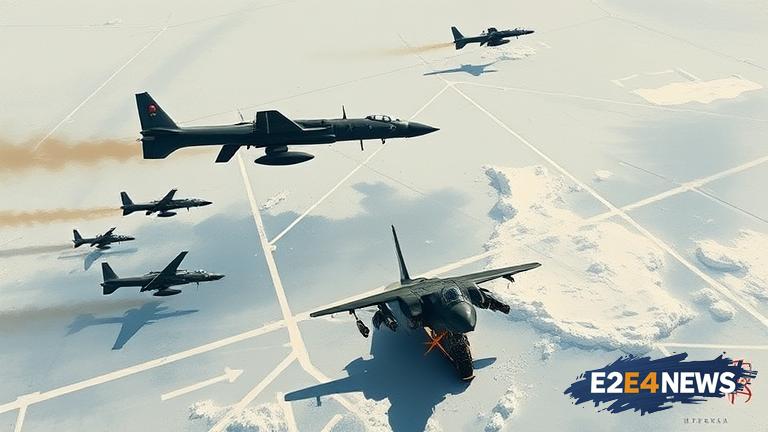The Russian Federation has been steadily increasing its military capabilities in recent years, with a significant focus on modernizing its armed forces and expanding its defense industry. This has led to a surge in weapons production, with Russia now producing more tanks, aircraft, and naval vessels than many of its NATO counterparts. The Russian military industrial complex has been able to achieve this through a combination of state investment, technological advancements, and strategic partnerships with other nations. As a result, Russia has become one of the world’s leading producers of military equipment, with a wide range of products including fighter jets, submarines, and missile systems. The implications of this are far-reaching, with many analysts warning that Russia’s growing military capabilities could pose a significant threat to global security. NATO officials have expressed concerns about the imbalance in military production, citing the need for increased investment in defense spending to counter the Russian threat. However, some experts argue that the situation is more complex, with Russia’s military modernization driven by a desire to assert its influence on the global stage rather than to provoke conflict. Despite this, the buildup of Russian military capabilities has significant implications for the balance of power in Europe and beyond. The United States, in particular, has been critical of Russia’s military expansion, with some lawmakers calling for increased sanctions and diplomatic pressure to be applied. Meanwhile, European nations have been seeking to strengthen their own military capabilities, with many investing heavily in new equipment and technology. The situation has also sparked a debate about the role of NATO in maintaining regional security, with some arguing that the alliance needs to be more proactive in countering the Russian threat. Others, however, argue that NATO should focus on diplomatic efforts to reduce tensions and promote cooperation with Russia. As the situation continues to unfold, one thing is clear: the global security landscape is becoming increasingly complex, with Russia’s military modernization playing a significant role. The coming years will be crucial in determining the trajectory of international relations, with the potential for increased cooperation or conflict hanging in the balance. Ultimately, the world will be watching closely as Russia continues to assert its military influence, and NATO responds to the growing challenge. The Russian government has stated that its military modernization is aimed at defending the nation’s interests and ensuring regional stability, but many remain skeptical about the true intentions behind the buildup. The international community will need to navigate this complex situation carefully, seeking to promote dialogue and cooperation while also ensuring that the security and stability of the region are maintained.
